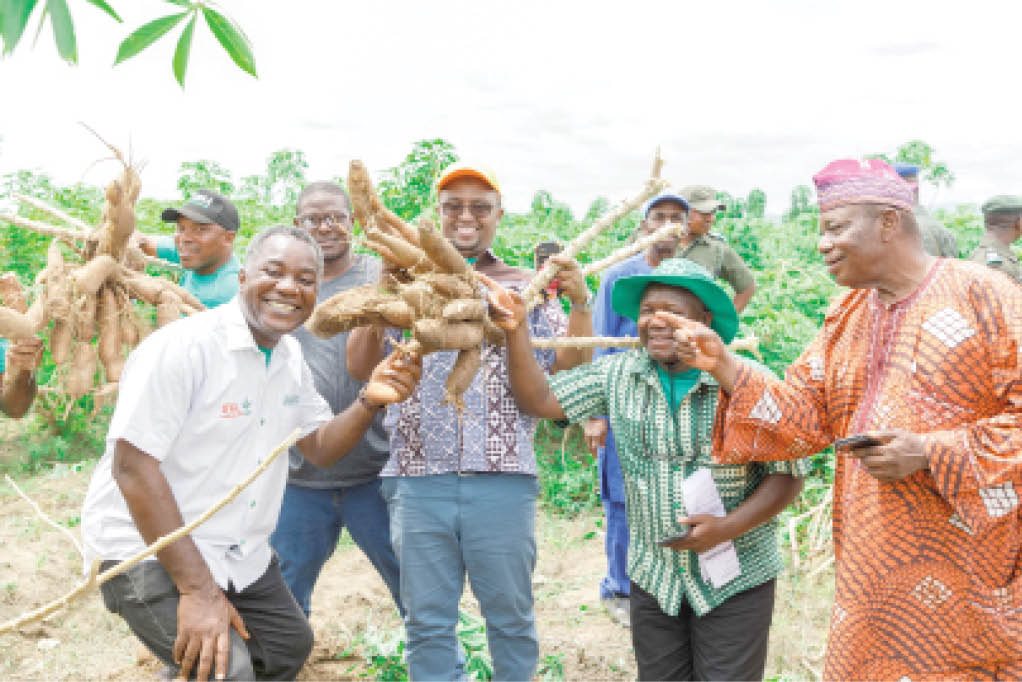New improved cassava varieties excite farmers
Farmers in Kogi and Benue are excited at the large sizes and number of roots produced by the new cassava varieties ‘Baba-70 and Game Changer.’ When cultivated with good agronomic practices and weed control, the new varieties produce more than 30 tonnes per hectare instead of the current national average yield of eight tonnes. According […]

Farmers and researchers celebrating the new varieties
Farmers in Kogi and Benue are excited at the large sizes and number of roots produced by the new cassava varieties ‘Baba-70 and Game Changer.’
When cultivated with good agronomic practices and weed control, the new varieties produce more than 30 tonnes per hectare instead of the current national average yield of eight tonnes.
According to the breeders, while Game Changer can produce 32 tonnes per hectare, Baba 70 can produce 38 tonnes. It was also proven that the new cultivars were drought-tolerant and resistant to the virus diseases of cassava.
During a farmers’ field day/product launch, they were excited about the varieties, which were developed by the NextGen project.
Farmers who spoke about the difference between the new varieties and the old ones said Baba 70 and Game Changer yielded more than local varieties, which they were used to. Some took a few stems to plant on their fields, saying they would love to adopt the new varieties.
Speaking at the event, Dr Ismail Rabbi, a molecular geneticist and plant breeder in the International Institute of Tropical Agriculture (IITA), said that years of consumer preference studies were conducted before releasing the varieties.
“In addition to high yield and stress tolerance, we found that these varieties are suitable for several agro-ecologies. Farmers, processors and consumers love these varieties because they were high-yielding, stress-tolerant, disease-resistant and had the right food properties,” he said.
On her part, Dr Mercy Diebiru-Ojo, who heads IITA GoSeed, the varieties would help raise the livelihood of farmers.
“I am confident that farmers who adopt these varieties will make more profit and improve their livelihood. These varieties are also a huge contribution to food security,” she said.
